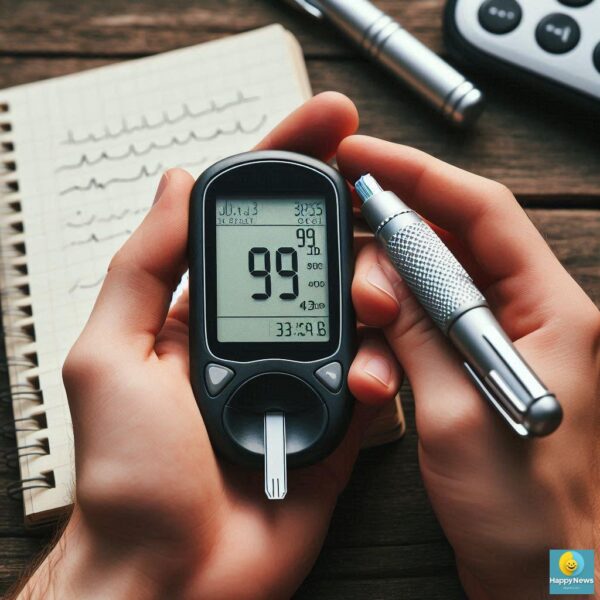Discover 10 effective ways to reduce HbA1c levels naturally. Learn actionable tips to improve blood sugar control and maintain a healthier lifestyle.
Jump to Section:
- 1. Adopt a Balanced Diet to Reduce HbA1c Level
- 2. Incorporate Regular Exercise
- 3. Monitor Carbohydrate Intake
- 4. Stay Hydrated to Reduce HbA1c Level
- 5. Prioritize Sleep and Stress Management
- 6. Take Medications as Prescribed
- 7. Practice Portion Control
- 8. Introduce Intermittent Fasting (If Suitable)
- 9. Add Natural Supplements to Your Diet
- 10. Commit to Consistent Monitoring
- Conclusion
Introduction
Managing your HbA1c levels is essential for maintaining long-term health, particularly for those with diabetes or prediabetes. HbA1c reflects your average blood sugar levels over the past three months, providing a clear picture of your glucose control. If you’re looking for practical strategies to reduce HbA1c level, this guide covers 10 proven tips to help you achieve better control and improve overall well-being.
1. Adopt a Balanced Diet to Reduce HbA1c Level
A diet rich in whole foods, including vegetables, lean proteins, whole grains, and healthy fats, can work wonders for lowering HbA1c. Avoid processed foods, sugary beverages, and high-glycemic-index (GI) carbohydrates that can spike blood sugar.
Pro Tip: Include fiber-rich foods like beans, lentils, and leafy greens to stabilize blood sugar and reduce HbA1c level naturally.
2. Incorporate Regular Exercise
Physical activity helps your body use insulin more effectively, allowing glucose to enter cells and reducing overall blood sugar levels. A mix of aerobic exercises (like walking or swimming) and strength training can significantly improve HbA1c.
Quick Tip: Aim for at least 150 minutes of moderate-intensity exercise weekly for optimal results in lowering HbA1c.
3. Monitor Carbohydrate Intake
Carbohydrates have the most direct impact on blood sugar. By monitoring portion sizes and choosing low-GI carbs, you can avoid sugar spikes and reduce HbA1c level over time.
How to Start: Use a food diary or an app to track your carb intake and ensure you’re staying within your recommended daily limit.

4. Stay Hydrated to Reduce HbA1c Level
Drinking plenty of water helps flush excess glucose from your bloodstream, which can positively impact to reduce HbA1c levels. Dehydration, on the other hand, can lead to higher blood sugar levels.
Tip: Replace sugary drinks with water, herbal teas, or infused water for hydration without extra calories.
5. Prioritize Sleep and Stress Management
Chronic stress and poor sleep can elevate cortisol levels, leading to higher blood sugar. Practicing mindfulness, meditation, or yoga can help lower stress and improve sleep quality, which in turn reduces HbA1c.
Pro Tip: Stick to a consistent sleep schedule and aim for 7–9 hours of restful sleep each night.
6. Take Medications as Prescribed
If you’re on medications to control blood sugar, following your healthcare provider’s instructions is crucial. Missing doses or inconsistent use can cause fluctuations in glucose levels, making it harder to reduce HbA1c levels.
Why It Matters: Medications, when used correctly, act as a key tool alongside lifestyle changes to achieve better glucose control.

7. Practice Portion Control
Overeating—even healthy foods—can lead to blood sugar spikes. By practicing portion control, you can prevent overeating and manage your calorie intake, which helps to reduce HbA1c levels.
Quick Tip: Use smaller plates and measure servings to avoid consuming more than necessary.
8. Introduce Intermittent Fasting (If Suitable)
For some individuals, intermittent fasting (IF) can help stabilize blood sugar levels and improve insulin sensitivity. However, consult your doctor before trying this approach, especially if you’re on diabetes medications.
Why It Works: IF can lower overall glucose exposure, contributing to reduced HbA1c over time.
9. Add Natural Supplements to Your Diet
Certain supplements, like cinnamon, magnesium, or berberine, have been shown to support blood sugar regulation. While not a substitute for medical treatment, they can complement your efforts to reduce HbA1c levels.
Pro Tip: Always consult a healthcare provider before adding supplements to your routine.
10. Commit to Consistent Monitoring
Regular blood sugar testing and tracking your HbA1c results over time can help you identify patterns and make necessary adjustments. Staying informed about your progress is key to successfully reducing HbA1c levels.
How to Start: Use a glucometer and work with your healthcare team to set realistic targets for improvement.

Conclusion
Lowering HbA1c levels requires a combination of mindful eating, regular activity, stress management, and adherence to medical advice. By incorporating these ten tips into your lifestyle, you can take control of your health and see measurable improvements in your HbA1c over time. Start small, stay consistent, and celebrate your progress as you work to reduce HbA1c level and live your healthiest life.
References and External Sources
• The Importance of HbA1c in Diabetes Management
• Exercise Tips for Blood Sugar Control
Related Article: Best Practical Ways to Build Character.
Similar Posts:
- Whole Grain Wonders: Healthy Foods for You and the Planet
 Switching to a whole grain diet not only revitalizes your health but also contributes to a healthier planet by using fewer … Read more
Switching to a whole grain diet not only revitalizes your health but also contributes to a healthier planet by using fewer … Read more - Rats with Backpacks: The New Heroes Against Smuggling
 Background Imagine a world where small, agile allies are employed to curb the illegal wildlife trade. In an unconventional twist, specially … Read more
Background Imagine a world where small, agile allies are employed to curb the illegal wildlife trade. In an unconventional twist, specially … Read more - Reasearch based top 6 tips on raising “Good Kids”
 Introduction Every parent’s dream is to raise children who are kind, responsible, and emotionally resilient. Harvard psychologists have examined what it … Read more
Introduction Every parent’s dream is to raise children who are kind, responsible, and emotionally resilient. Harvard psychologists have examined what it … Read more - Empowering Children with Dyslexia in Chennai: MDA
 Introduction In 1992, a compassionate group of parents, educators, and philanthropists came together to create the Madras Dyslexia Association (MDA). Their … Read more
Introduction In 1992, a compassionate group of parents, educators, and philanthropists came together to create the Madras Dyslexia Association (MDA). Their … Read more




